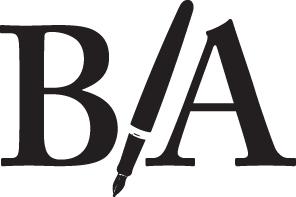Sunday Sermonizing: Praying When Words Fail
Written prayer has been an interesting part of my spiritual journey for a couple of decades. I discovered the beauty and the value of written prayer sometime 20 years ago while I was serving as a pastor.
I come from an evangelical tradition where prayers are best if extemporaneous. Spontaneous. Unplanned and unrehearsed. The ability to pray is often equated with the ability to speak out loud. On the spot. Pre-planned prayers couldn't possibly be "Spirit-led". Written prayers were for "High Church". We live by the Spirit, not a liturgy.
But this sounds strange, even as I write these words. Written prayers have been around since ancient times. The earliest book of the Bible is the book of Job. In that book we have recorded the prayers a man prayed during some of his deepest pain and toughest questions. The Psalter is an entire book in the center of our Bibles that is all about prayers that are written. Prayers were written and used in worship from the very earliest days of the Church. We live by Spirit and liturgy.
For example, the Didache is one of the earliest prayers known to the Church.
We give you thanks Holy Father, for your holy name which you have caused to dwell in our hearts, and for the knowledge and faith and immortality which you have made known to us through Jesus your servant; to you be the glory forever.
You, almighty Master, created all things for your name's sake, and gave food and drink to men to enjoy, that they might give you thanks; but to us you have graciously given spiritual food and drink, and eternal life through your servant [Jesus]. Above all we give thanks because you are mighty; to you be the glory forever.
Remember your church, Lord, to deliver it from all evil and to make it perfect in your love; and gather it, the one that has been sanctified, from the four winds into your kingdom, which you have prepared for it; for yours is the glory forever.
May grace come, and may this world pass away. Hosanna to the God of David. If anyone is holy, let him come; if anyone is not, let him repent. Maranatha! Amen.
Of course prayer is meant for spoken language. Silent prayer, while sometimes beneficial, isn't supposed to be the norm. Prayer is meant to be spoken. Out loud. Yet, sometimes the difficulties we face, the doubts that come into our heads, and the pain we feel in this fallen world leave us without verbal recourse. The only thing we can do is to be silent.
Words fail.
There are times when unplanned, free wheeling, extemporaneous verbiage to God feels like merengue. Like something my verbal tendencies will do, to fill the space. Written prayers give me the opportunity to have the space - and often the voice - I need to pray.
I recommend trying "Celtic Daily Prayer" for your first excursions into written prayers. I use this daily.
